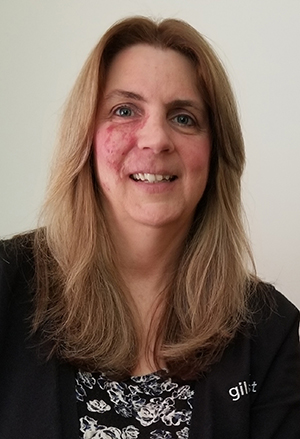Gilchrist Celebrates National Family Caregivers Month

November is National Family Caregivers Month and a time to recognize and honor family caregivers at Gilchrist and across the country. There are over 40 million unpaid, informal caregivers providing support to older adults in the United States, and a quarter of adults ages 45 to 64 are caring for an aging adult.
The rewards of caregiving are numerous and rich. Caregiving for a loved one provides a chance to connect at a deeper level, and it can be a way to thank someone who has cared for you. There is a satisfaction in giving such a precious gift to another human being.
The Stress of Caregiving
But just as the rewards of caregiving are many, so are the stressors. Caregivers may be so focused on the needs of others that they fail to see the signs when their own emotional and physical health are being compromised. Too much stress over a long period of time puts a person at risk for multiple health issues, including heart disease, digestive issues and depression.
Signs and Symptoms of Caregiver Stress
- Feeling tired or run down
- Increased irritability
- Weight loss or gain
- Being constantly overwhelmed or worried
- New or worsening health problems
- Difficulty concentrating
- Trouble sleeping
- Feeling increasingly resentful
- Drinking, smoking or eating more
- Pulling back from social contact
Allowing the stressors of caregiving to overwhelm and remain unchecked can lead to burnout. When you are burned out, you may lose the motivation to do anything, including care for your loved one. That’s why taking care of yourself is not being selfish—it is a necessity.
There are ways to mitigate the effects of caregiver stress. It is not always easy to make these changes, but they are vitally important.
Coping with Caregiver Stress
- Ask for and accept help. Be prepared with a list of concrete ways others can help, such as picking up groceries, running an errand or cooking a meal.
- Have realistic goals for yourself. Try to break large tasks into smaller, more manageable steps. Make lists. Learn how to say no to requests that can be draining.
- Seek social support. This is usually last on a caregiver’s list, but it is so important to stay connected with family and friends and to set aside time each week, even if in small ways, such as a walk or a cup of coffee with a friend.
- Join a support group. These groups connect you to people facing similar experiences while also providing encouragement. They also provide an opportunity to discover strategies others use in difficult situations.
- Make personal health goals. Find time to be physically active, get into a good sleep routine, set and keep doctors’ appointments, eat a healthy diet and drink plenty of water.
Please celebrate National Family Caregivers Month and learn more about Gilchrist and the ways we can help people with serious illness and their caregivers.


